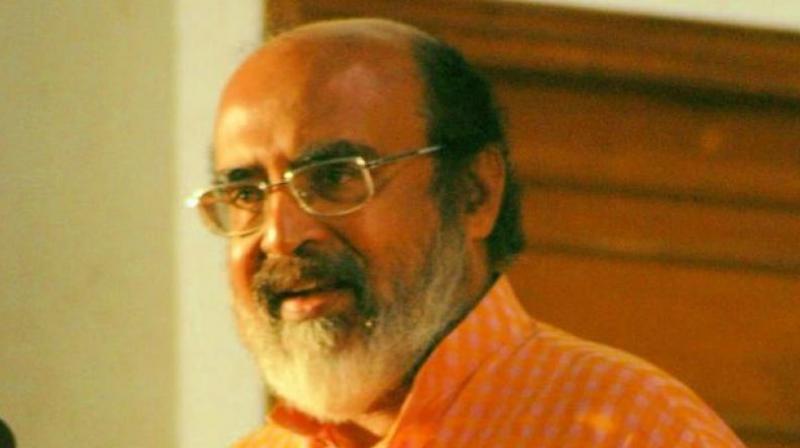Budgetricks in testing times
The state has been given a mandate of wiping out the revenue deficit by the 14th Finance Commission.

As one who has been closely following the budget for the last few decades, the state budget does not excite me at all. Except the media hype, budgets in Kerala ceased to have much substance long back. If anything, the fiscal situation of the state has only worsened since the presentation of the revised budget for 2016-17 in August 2016. The White Paper presented by the Finance Minister immediately after assuming the chair had estimated the revenue deficit to be around Rs 18,000 core for the fiscal 2016-17. If the actual figure is lower than this, it is not because the finances have been managed well but because resource mobilization and expenditure targets have been downsized following demonetization. The state has been given a mandate of wiping out the revenue deficit by the 14th Finance Commission. This is possible only through mobilizing more public resources and curtailing unproductive expenditure. This indeed is a tightrope walk in the Kerala context. The coalition politics the state has been witnessing for the last half a century has created an illusion that public services are almost free and will flow uninterruptedly.
The public perception of the government is one that keeps the people always in good humour. Dr Thomas Isaac is one who does not find much virtue in conservative fiscal management of hitting the target by compressing expenditure. An economist in his own right, he has got his logic right. A government should not have the mindset of a private individual who is petrified by mounting debt. The Government is there to borrow, spend and take the economy and society forward. Towards this end, he has floated the outfit Kerala Infrastructure Investment Fund Board (KIIFB). KIIFB is not constrained by the fiscal target of the Finance Commission as it is outside the budget. Resources mobilized by KIIFB will be utilized only for infrastructure projects. Going by the available reports, KIIFB has taken its task quite seriously and began financing a few infrastructure projects.
Time will tell whether this development strategy will bail out Kerala. If projects financed by KIIFB widen the resource base of the state, one need not be bothered too much about the future liability. But then there are many imponderables. The pitfall of this strategy is that it only postpones the dire need of public resource mobilisation. Is it that the state has exhausted the potential for public resources? Kerala’s record on this over the years has been dismal. While her share in own tax revenue of all states was 5.09 percent during the early 1990s, it has been 4.71 percent during the last 10 years. Over the years, Kerala’s resource base got narrowed down to a few items. Petrol, liquor, lottery and motor vehicles together contribute nearly 50 percent of state’s own revenue.
Of this, the first three are handled by public sector undertakings and therefore are almost evasion and /or avoidance free. There are circumstances which make tax evasion and /or avoidance difficult in the case of the last one. On the other hand, the state is top among major states in per capita house-hold expenditure. The extent of tax leakage going on in Kerala is beyond one’s imagination. Take the case of jewellery and gold. Kerala accounts for 23.12 percent of the jewellery and gold consumed in the country. But it contributes only 1.60 percent of the Commercial Tax revenue of the state. The heavy reliance on liquor and lottery for public resource mobilization has serious equity implications.
The poor and marginalized are the major consumers of both. The state cannot be blamed for this. It is to discourage consumption that 135 percent tax is levied on liquor. And on lottery, nobody forces you to seek luck. It would have been fine if the state could compensate the amount so treacherously siphoned off from them by some kind of transfer payments. It is to the credit of Dr. Isaac that he raised the welfare pensions from '600 per month to '1,000. But what is the value of '1,000 if one takes into account the fall in the value of money? One cannot find fault with him when salary, pension and interest payments empty the treasury. Remember, these are items of committed expenditure, a sort of holy cow. You have to think a thousand times before you lay hands on them. The solution to this vicious cycle is not in sight. It is for this reason that the state budgets have just degenerated to an annual ritual.
(Dr. Jose Sebastian is a faculty member of Gulati Institute of Finance and Taxation. Views are personal.)

